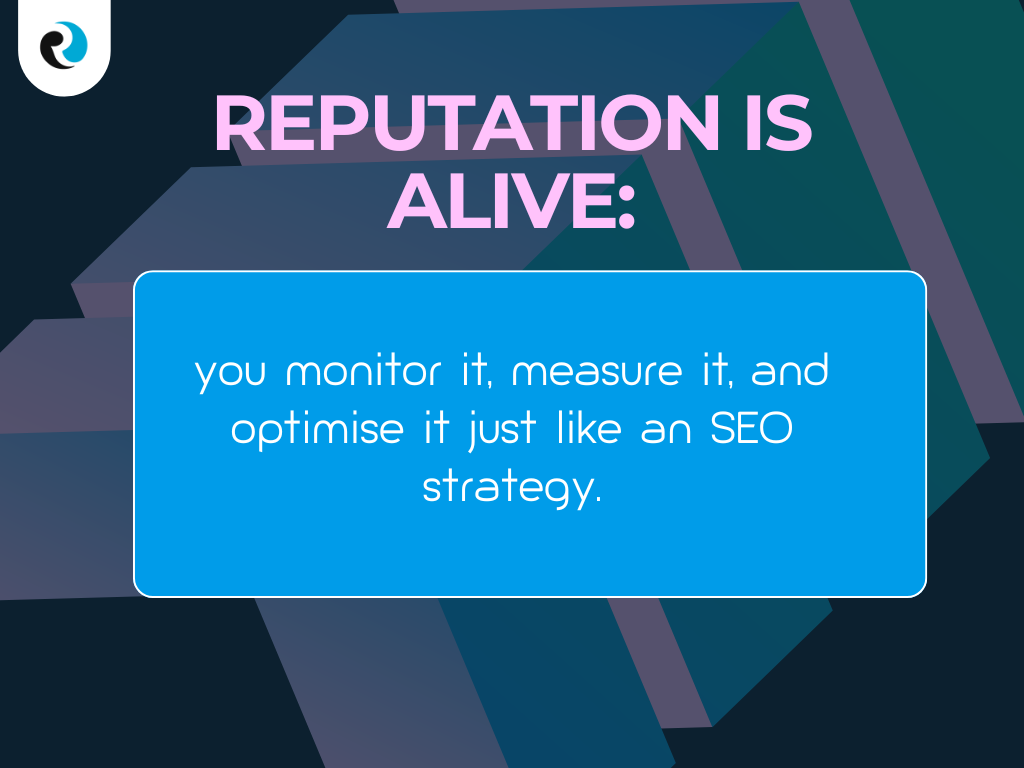SEO is no longer just about keywords and rankings.
For brands, companies, and professionals, it has become a core reputation engine: what appears on the first page of Google determines whether your name inspires trust, hesitation, or outright rejection.
When someone searches for your brand, they are not merely looking for data; they are deciding if they can rely on you. That is why advanced SEO strategies must be designed not only to drive traffic, but to build and defend a flawless reputation over time.
Reputational SEO: shaping the story behind your name
Reputational SEO combines technical optimisation, content strategy, and digital reputation management. Its goal is not to “manipulate” results, but to ensure that Google shows a complete, verifiable, and up-to-date picture of who you are.
Your brand SERP is much more than your homepage. It includes news articles, reviews, forums, social profiles, business directories, and industry platforms. Advanced SEO looks at this entire landscape and organises it so that the overall story matches your values and your actual performance.

Online reputation is never neutral
“Online reputation is never neutral: it is either working for you or against you.” – Andrea Baggio, CEO of ReputationUP
This is the essence of reputational SEO: every result that appears in the SERPs shifts perception in one direction or another. Ignoring this means letting random or hostile content define your identity.
How search results steer trust and decisions
Before signing a contract, approving a loan, investing in a project, or choosing a provider, people perform quick online checks. In just a few clicks, they can find a critical article, a prominent negative review, or a heated forum thread.
When these elements dominate the first page, they can outweigh years of solid work. Advanced SEO strategies must therefore act as an intelligent filter: not to hide information, but to contextualise it, balance it, and surround it with accurate, well-documented content.
Advanced SEO as a defence layer
Sound SEO work starts with the uncomfortable questions people might ask about your brand (“problems”, “complaints”, “scam”, “reviews”) and builds pages that answer them with clarity. These pages:
- provide context and documented facts
- show how issues have been solved or are being addressed
By doing so, you reduce the chance that anonymous blogs or angry comments become the only sources users find when they look you up.
Official guidance and content quality
Google’s documentation is very clear about what qualifies as valuable content. The SEO starter guide and the Search essentials stress usefulness, expertise, and clarity.
A page that genuinely answers user questions, explains context, and offers realistic solutions is more likely to become a stable pillar of your digital reputation. Advanced SEO aligns technical structure, semantics, and authority signals so that Google can understand which pages deserve to represent your brand.
SEO, online crises, and narrative rebuilding
When harmful, outdated, or distorted content exists, SEO alone is not enough. It must be combined with legal tools (such as the right to be forgotten and defamation laws) and with a coherent communication plan.
The most effective approach works on two levels: legal requests aim to remove or de-index content where possible, while new, optimised pages provide a documented, updated version of events. Even when you cannot erase the past, you can ensure that users see more than a single, sensationalist angle.
Handled correctly, this does not rewrite history; it adds missing context and shows your ability to manage and resolve problems.
Continuous monitoring and long-term strategy
A flawless reputation is the result of continuous work. Search results change, new content appears, and sentiment shifts. For this reason, advanced SEO must include ongoing monitoring, supported by data and early-warning alerts.
ReputationUP’s monitoring solutions help track sensitive brand queries, detect suspicious changes, and respond before a single negative result becomes the dominant story.

Data, stories, and market perception
“Data tells a story, but we decide how the market will read it.” – Juan Ricardo Palacio, CoFounder & CEO of ReputationUP
Advanced SEO is exactly this: the discipline that turns scattered data points into a coherent, defensible narrative.
Advanced SEO and financial reputation
Digital reputation has a direct impact on financial reputation. Banks, investors, and strategic partners read the same search results as everyone else. A landscape full of unresolved disputes, complaints with no answer, or regulatory issues can translate into tougher conditions, extra guarantees, or lost opportunities.
A clear, transparent online presence – strengthened by ReputationUP’s work on your overall reputation – reduces perceived risk and makes dialogue with stakeholders easier. The point is not to look perfect, but to demonstrate control, transparency, and resilience.
How ReputationUP uses SEO to protect your name
ReputationUP combines legal expertise, technical SEO, and strategic communication to turn your brand SERP into an asset instead of a problem. Through analysis, optimisation, and monitoring, the team helps companies and professionals:
Rebuild their image after a crisis, prevent future reputation issues, and align messages with what they truly want to communicate.

Conclusion: SEO as the architecture of trust
Advanced SEO strategies have become the architecture of online trust.
Those who ignore them allow chance to write their story; those who master them decide how their brand appears precisely when people are judging it.
Investing in reputational SEO means deliberately designing your first page of Google so that it reflects who you are and supports where you want your business to go.
Frequently Asked Questions (FAQ)
Classic SEO focuses mainly on ranking generic keywords and increasing traffic. Reputational SEO uses the same tools but concentrates on brand and personal queries, ensuring that users see information that builds trust rather than suspicion when they search for you.
No. When content is defamatory, unlawful, or extremely harmful, legal action is essential. SEO then becomes the strategic layer that reorganises search results so that accurate, updated information is easier to find than distorted or outdated pages.
It depends on your starting situation and on how authoritative the sites hosting negative content are. Typically, reputational SEO requires several months of sustained work to stabilise better results and reduce the visibility of critical pages, backed by continuous monitoring.
Yes – that is the ideal moment. Building a strong, positive presence before a crisis creates a protective layer: if negative content appears later, it must compete with an already solid ecosystem of credible pages.
Absolutely. Executives, consultants, doctors, lawyers, and public figures often have highly exposed personal brands. Working on the SEO of your name can significantly influence career opportunities, client trust, speaking invitations, and media coverage.

